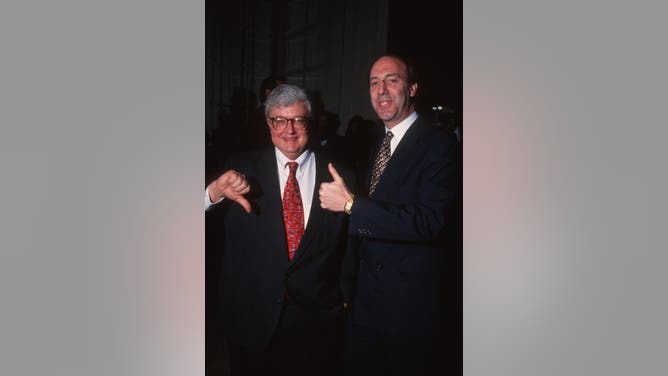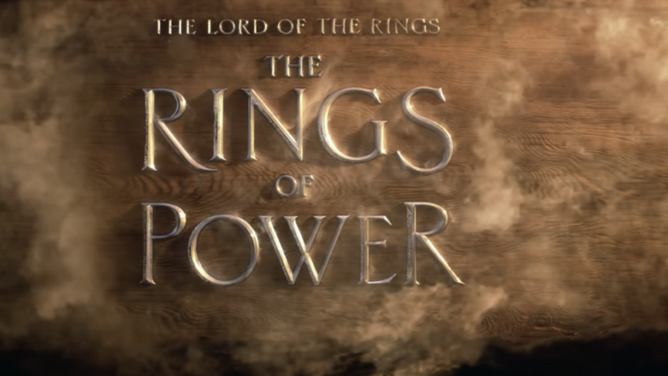The Ugly Truth Behind 'Review Bombing'
The gulf between critics and audiences has never been wider, or so says a new Bloomberg feature story on reviews.
Audiences have given the top 10 movies an average score more than 19 points higher than critics, by far the biggest difference this century. The only two of the year’s 10 biggest movies where audiences and critics are even close are “Top Gun: Maverick” and “The Batman.”
Anecdotal evidence backs up that claim. Or a quick peek at Rotten Tomatoes, where new fare like “Honk for Jesus: Save Your Soul” features a ghastly 72/26 critic-audience split. And it’s far from alone.
Another example? Netflix’s “Hannah Gadsby: Nanette” -- 100/26.

Roger Ebert and Gene Siskel during 31st Annual Publicists Guild of America Awards Luncheon at Beverly Hills Hilton Hotel in Beverly Hills, California, United States. (Photo by Ron Galella, Ltd./Ron Galella Collection via Getty Images)
The days of Siskel and Ebert are long gone. Plus, audiences are getting fed up with stories that care more about progressive messaging than actual, you know, entertainment.
Get woke, go broke. Or unleash unwoke blockbusters like “Spider-Man: No Way Home” and “Top Gun: Maverick” and count the money.
Enter “review bombing,” where audiences attack a show or movie prior to its release based on trailers and comments from the creators themselves. The term implies audiences are negatively pre-judging a film, in many cases for its perceived woke qualities.
Media platforms are fighting back, with the full support of the entertainment press.
Rotten Tomatoes previously prevented audiences from weighing in on a film or show prior to its release, a wise move given most people don’t have access to press-only screenings for such fare.
IMDB.com, a major film destination, also tweaks its review algorithms to purportedly stop “review bombing” in its tracks, potentially crushing authentic takes in the process.
The press is deeply invested in the “review bombing” threat for projects hailed for their progressive values. Back in 2016, the media went to bat for the all-female “Ghostbusters” reboot, suggesting those who didn’t like the film’s trailer were misogynists.
Media outlets praise these efforts, often as a way to support the woke projects in general.

More recently, Amazon took the unprecedented step of halting audience reviews for its “Lord of the Rings” prequel series, “The Rings of Power,” for 72 hours on its Prime Video platform. This time, the first two episodes were available for all to see, but Team Amazon clamped down on its own audience all the same.
The message is clear: Trust the elites, not the rubes. And you won't find much outrage, if any, from reporters who fear genuine opinions are getting pushed aside.
CinemaBlend explains and defends the move this way:
According to , 84% of critics gave LOTR: Rings of Power a positive review, a favorable statistic, certifying the series as “fresh” according to the site's metric system. However, the fan score is currently at 39%, indicating a majority of viewer reviews skew overwhelmingly negative.
So what?
Maybe critics are wrong and the viewers are right? Critics in the modern era sometimes grade titles on a curve, something veteran critic Richard Roeper admitted following the “Ghostbuster” debacle.
Or perhaps it’s just another case of the chasm between critic and fan. Sure, audience reviewers may still be miffed about all the diversity blather tied to “Rings” prior to its release. Who’s to say they’re wrong, or that their voices shouldn’t heard for an extended period?
The review bombing narrative is destructive on a few levels. The obvious problem? Attacking audiences as racist for not wanting diversity shoved down their throats. Hollywood needs to court every American moving forward, especially in Biden's America.
It's also often a lie.
The vast majority of audiences have no problem with diverse showcases. The “Fast & Furious” franchise is aggressively diverse, and it’s beloved across the culture.
Why? It doesn’t shove that message in the audience’s collective face. Vin Diesel doesn’t share woke talking points while promoting the franchise. It’s just fast cars, insane stunts and attractive characters saving the day.
The nation's biggest movie stars are often black, from Eddie Murphy during the 1980s to Dwayne Johnson today.
There’s another issue in play.
What if review bombing goes the other way? Will these platforms rush to protect, say, “My Son Hunter” from liberals who want to punish the film for exposing the Biden family corruption?
Here’s betting the answer is a big, fat “no.” And that tells us plenty about the review bombing narrative, no?